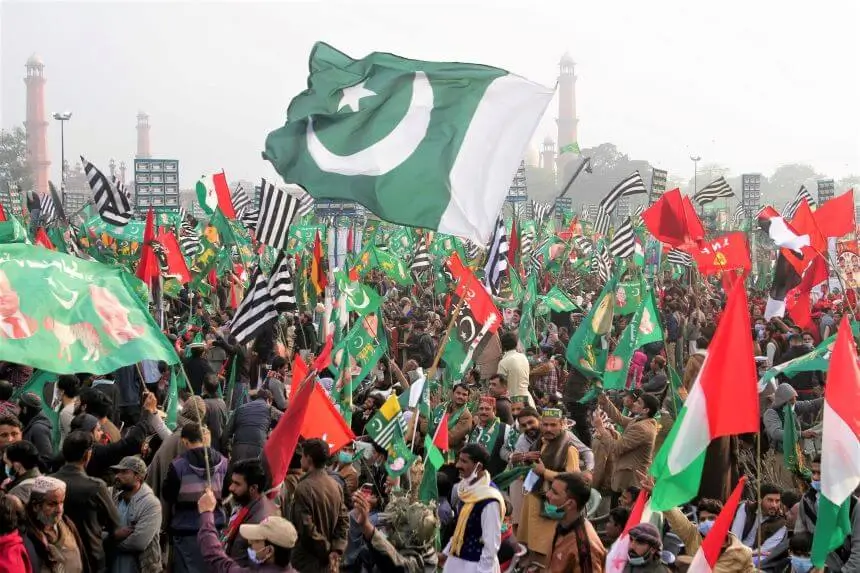Pakistan, the sixth-most populous country in the world, has struggled to achieve political stability since its independence in 1947. Military coups, ethnic conflicts, separatist movements, terrorism, and interference from external powers have collectively undermined the democratic process. However, despite its turbulent history, Pakistan remains committed to strengthening its democratic institutions and fostering conditions for greater political stability.
The roots of Pakistan’s political volatility lie in its status as a newly formed nation comprised of diverse ethnic groups, languages, cultures, and religions. The lack of consensus on the contours of national identity and an independent political culture presented challenges to representative governance from the outset. Early military coups and the centralization of power by civilian leaders weakened democratic norms and participatory decision-making.
Nonetheless, Pakistan has made strides towards representative rule. The elections of 2008 marked the first democratic transition of power from one elected government to another. Recent efforts have focused on institutional reforms to increase transparency and accountability. The devolution of powers to provincial governments has also helped address the grievances of marginalized groups. However, deep-rooted issues like elite capture of politics, corruption, and civil-military distrust continue to test the resilience of the political system.
Pakistan, the sixth most populous country in the world, has struggled to achieve political stability since its independence in 1947.
A key driver of instability is the economy’s inability to provide employment and equitable growth, leading to disaffection among the masses. The lack of access to education, justice, and basic services further alienates citizens from the state. Militant groups exploit these grievances to recruit alienated youth and engineer violence, undercutting the state’s legitimacy. Enhancing socioeconomic development and welfare must therefore be prioritized.
The influence of the military on political affairs is another major impediment to democratic governance in Pakistan. Frequent military coups, around four in total since independence, have disrupted constitutional continuity and severely weakened civilian supremacy over the years. Even under nominal civilian democratic rule, the military still exerts control and influence over key areas of policymaking like defense, national security, and foreign affairs through both formal and informal channels. Substantially reducing the extra-constitutional powers accumulated by the military over decades is an essential prerequisite for establishing stable democratic governance and civilian supremacy in Pakistan in the long run.
Moreover, polarized center-province relations stemming from uneven development have spawned separatist insurgencies that further destabilize the system. Devolution of powers and fair resource distribution is key to redressing political marginalization and preventing conflict. Similarly, promoting interfaith harmony can help counter religion-based discord.
The influence of the military on political affairs is a major impediment to democratic governance in Pakistan.
External factors like tensions with India and instability in neighboring Afghanistan also impact Pakistan’s internal security situation. Great power rivalries exacerbate regional uncertainty. While Pakistan cannot eliminate external threats entirely, increased economic integration and conflict resolution efforts with neighbors can mitigate risks and enable focus on domestic reforms.
Cultivating political stability is a long-term endeavor requiring multi-pronged efforts. Constitutional safeguards for civil liberties, judicial independence, and a free media can empower citizens to hold leaders accountable. Robust public participation, through civil society activism and fair electoral competition, is equally important for responsive governance. Sustained international support for democratic consolidation, sans security agendas, is also vital.
Ultimately, Pakistan’s highly complex internal dynamics and geopolitical constraints arising due to its delicate strategic location make achieving sustainable political stability an elusive goal. Yet, the strong democratic aspirations consistently expressed by its mostly young population of over 200 million people and the remarkable resilience shown by its civil society against repeated authoritarian assaults instill hope. With committed, visionary leadership at the helm that can carry out key structural reforms to existing political and governing institutions, Pakistan can slowly but steadily work towards actualizing its vision of a truly stable democratic polity sincerely governed by the rule of law and constitutional principles. After all, such political stability and adherence to the rule of law are absolutely indispensable prerequisites for Pakistan to fully unleash its massive population’s tremendous human talent and potential, enabling sustainable, long-term socioeconomic progress.

Appreciable 👍🏽
I just finished reading your article, and I have to say, the content was absolutely outstanding! Your writing style is engaging and well-structured.
Keep it up!!!
amazing work 👏
Impressive 😍
Great content, well written, thoroughly summaries what promise in the opening lines.
great effort. I would love to read more of such well-rounded content.